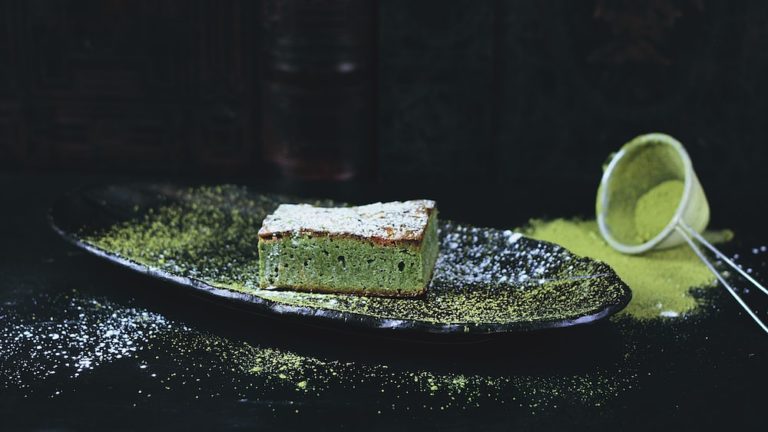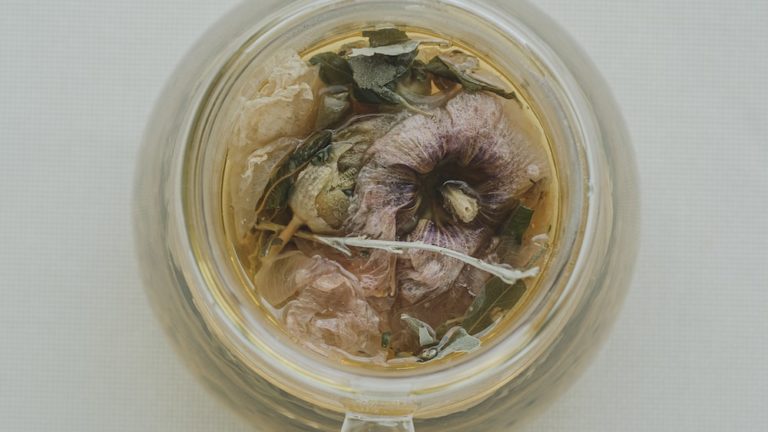Unveiling The Remarkable Black Tea Benefits For Health

Unveiling The Remarkable Black Tea Benefits For Health
Ah, black tea – the morning ritual for legions and a cozy companion for the afternoon slump. In the realm of teas, it has carved out a distinguished place on the shelves of aficionados and casual sippers alike. But did you know that indulging in a cup of this dark elixir goes beyond just soothing the soul? Yes, the myriad of black tea benefits for health might make you see your humble tea bag under a new, awe-struck light.
Key Points:
- Black tea is rich in antioxidants that combat free radicals and support overall health.
- The oxidation process gives black tea its unique flavor and color, setting it apart from green or white tea.
- Black tea contains compounds like theaflavins and thearubigins that offer health-boosting properties.
- Regular consumption of black tea can lower the risk of heart disease and improve heart health.
- Black tea may help lower bad LDL cholesterol levels and manage blood sugar levels.
- The antioxidants in black tea can potentially reduce the risk of certain cancers and improve focus and attention.
- When consumed in moderation, black tea can be a beneficial addition to a healthy diet.
From its rich antioxidant properties to its potential in managing blood sugar levels, black tea is not just a beverage; it’s a super-drink masquerading in the simplicity of dried leaves. Think of it as a cloak-and-dagger hero in the world of wellness, quietly battling the free radicals and calming the storms brewing in our bodies. In this exploration, we’re about to dive deep into its composition and uncover how it has been quietly boosting our health in stealth mode.
So, grab your favorite mug and let’s steep ourselves into the science, folklore, and the almost magical health benefits that black tea has to offer. Whether you’re a tea veteran or someone pondering over switching from coffee, this liquid treasure has something in store for you. And who knows? By the end, you might just find yourself reaching for the tea tin rather than the coffee canister.
The Unique Composition of Black Tea
Ever wondered what makes black tea so distinct in the bustling bazaar of beverages? It’s all in the alchemy of oxidation. When the leaves of Camellia sinensis decide to sunbathe a bit longer and swirl through the winds of oxidation, black tea draws its first breath, rich in flavor and color. This transformation not only changes its wardrobe but also its inner nutritional makeup, making it a source of fascination and health benefits.
What Makes Black Tea Unique?
The uniqueness of black tea lies in its oxidation process – an epic tale where tea leaves undergo a metamorphosis, embracing a darker hue and a fuller flavor. Unlike its cousins, green or white tea, black tea decides to take a walk on the dark side, exposing itself to air and time, which catalyzes the oxidation. This not only crafts its robust character but also elevates its compounds like theaflavins and thearubigins, giving it those health-boosting properties and a bolder narrative.
But it’s not just about the chemistry; the flavor profile of black tea reads like a whodunit mystery novel – complex, with unexpected twists of malty essence, citrus notes, or even a smoky backdrop, depending on its origin and processing methods. It’s the Sherlock Holmes of teas, if you will, with each sip revealing more of its intriguing personality. Black tea doesn’t just invite you to drink; it beckons you to explore. [1]

Black tea’s oxidation process transforms its flavor profile into a complex narrative, offering health benefits and a mysterious character akin to a whodunit mystery novel.
Nutritional Profile of Black Tea
Diving into the nutritional sanctum of black tea reveals a treasure trove of compounds eager to bestow their benefits on us. While technically lower in vitamins and minerals compared to its less oxidized relatives, the rise of polyphenols in black tea, such as catechins, theaflavins, and thearubigins, compensates with great flair. These antioxidant warriors are the Spartans at the gates, defending against cell damage and diseases.
Moreover, black tea is more than just its antioxidant count. It features caffeine and an amino acid called L-theanine, which together, can enhance brain function without the jitters associated with other caffeinated drinks. Imagine sipping on a beverage that sharpens focus while also calming the mind – a kind of mental yoga in a cup. It’s as if black tea knows exactly what we need, morphing into an elixir that supports both our physical and cognitive well-being. [2]
Comprehensive Health Benefits of Black Tea
The health benefits of black tea are as multifaceted as the tea itself, engaging with our bodies in ways that extend far beyond mere hydration. Grounded in both tradition and scientific research, these benefits form a compelling case for making black tea a regular guest in our daily diet.
Antioxidant Properties of Black Tea
Black tea brims with antioxidants, substances that sword-fight against free radicals – those mischievous molecules that contribute to cell damage, aging, and various diseases. Polyphenols, including the stalwart catechins, theaflavins, and thearubigins, lead this valiant charge. What’s fascinating is a study cited by “The Journal of Nutrition” which observed a notable decrease in DNA damage among regular black tea consumers, suggesting a protective armor bestowed upon the body’s cells. Remarkable, isn’t it?
This act of safeguarding extends beyond just cellular defense; it has a broader impact on overall health, potentially guarding against chronic diseases and supporting the body’s natural repair systems. It’s as if black tea serves as a night watchman, patrolling the body and keeping the intruders at bay, ensuring the cellular city remains peaceful and thriving.
Heart Health and Black Tea
Now, let’s tiptoe into the arena of heart health, where black tea is nothing short of a celebrated athlete. The compounds housed in those unassuming leaves have been linked to a lower risk of heart disease, as numerous studies attest. For instance, a sweeping review analyzed multiple research efforts, revealing that individuals who indulged in three cups of tea daily were at a lower risk of experiencing heart attack and other cardiovascular events.
Moreover, the theaflavins in black tea don’t just sit idly; they roll up their sleeves and work towards improving the health of blood vessels, while also playing a role in lowering blood pressure. Imagine these compounds as tiny, tea-sipping superheroes, keeping the heart’s avenues clear and functioning smoothly. It’s a team effort, with every sip contributing to a heartier heart.
But the love story between black tea and heart health doesn’t end here; further research highlighted how consistent black tea consumption can decrease the levels of bad LDL cholesterol in the body. In a world where cholesterol often wears the villain’s hat, black tea emerges as a mild-mannered hero, secretly fighting off the aforementioned villain to protect the city of Arterial Junction.
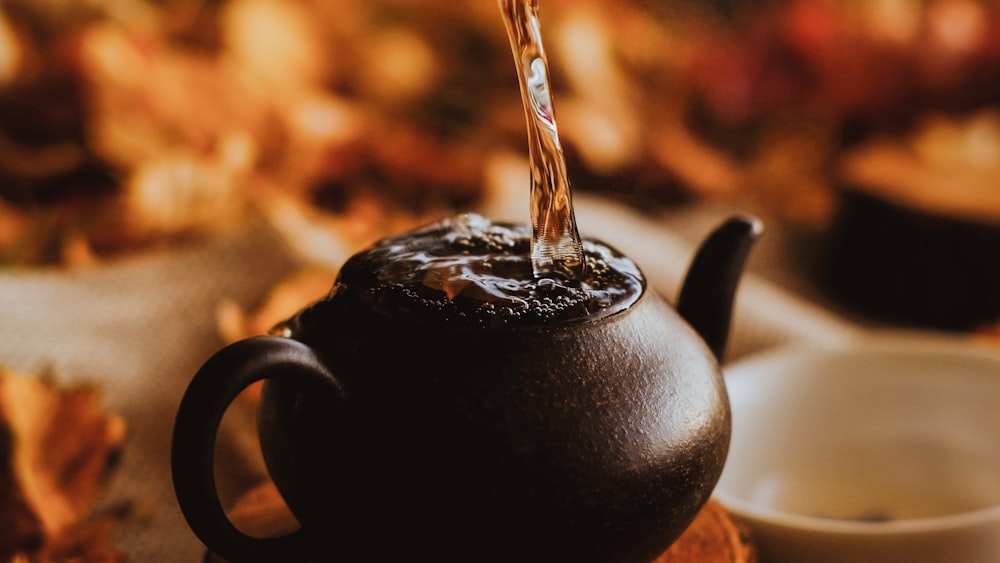
Black Tea’s Role in Lowering Bad LDL Cholesterol
When it comes to health narratives, the tales of “bad” LDL cholesterol often grab headlines for all the wrong reasons – being linked to an increased risk of heart disease. Enter black tea, a natural agent in the subtle art of cholesterol management. Research published in reputable sources has demonstrated that black tea’s unique blend of antioxidants can significantly diminish LDL cholesterol levels in both men and women.
This effect is not a one-hit wonder but a consistent finding across studies, suggesting that incorporating black tea into your diet could be a simple yet effective way to steer clear of cholesterol’s dark clutches. It’s as if black tea whispers to LDL cholesterol, “Not today, sir,” preventing it from wreaking havoc in the body’s vascular system.
Incorporating black tea into your diet could be a simple yet effective way to manage LDL cholesterol levels and reduce the risk of heart disease.
Gut Health and Black Tea
Black tea’s benefits extend to the vast universe within us – the gut. This beverage might itself be a quiet ally to our gut flora, those millions of microbial inhabitants that govern much of our health. A study showcased a fascinating interaction between black tea consumption and an increase in a group of bacteria known as Bifidobacterium – a beneficial resident of the gut.
This interaction not only helps in maintaining a healthy gut microbiome but may also enhance the absorption of nutrients and support the immune system. Imagine black tea as a kind gardener, tending to the flora of our gut garden, ensuring it flourishes and supports our health in myriad ways.
The Impact of Black Tea on Blood Pressure
In the relentless pursuit of maintaining optimal health, managing blood pressure emerges as a priority. Interestingly, black tea steps into this arena with potential benefits. Some research indicates that regular consumption of black tea can lead to a modest but significant reduction in blood pressure levels.
This effect might stem from the improved health of blood vessels – a result of the antioxidants at work. By keeping the vessels relaxed and functioning smoothly, black tea acts much like a traffic controller in the bustling city of our cardiovascular system, preventing the jams that can lead to high blood pressure.
Reducing the Risk of Stroke with Black Tea
Stroke – a word that shivers many a spine, representing one of the leading causes of death and disability worldwide. Here, black tea might dangle a string of hope. A substantial body of research, including a comprehensive review, has linked higher consumption of black tea with a reduced risk of stroke.
The mechanism behind this protective effect could be black tea’s influence on heart health and blood pressure, both of which play crucial roles in stroke occurrence. It’s as if black tea serves as a shield, deflecting the arrows aimed at causing stroke, lowering the chance of such dire events to unfold.
Black Tea and Blood Sugar Levels
Ah, blood sugar – that delicate dance we all must navigate, especially in a world laden with sugar-laden temptations. Black tea steps in as a suave dance instructor, potentially aiding in the regulation of blood sugar levels. Studies have suggested that the polyphenols in black tea, especially epigallocatechin gallate, might improve insulin sensitivity, thus lowering blood sugar levels post-meal.
This effect brings with it the promise of aiding in the management of diabetes and reducing the risk of type 2 diabetes development. Imagine black tea not just as a beverage but as a health ally, partnering with your body to keep the tides of blood sugar at bay, making the journey through the day a bit smoother and sweeter, metaphorically speaking.
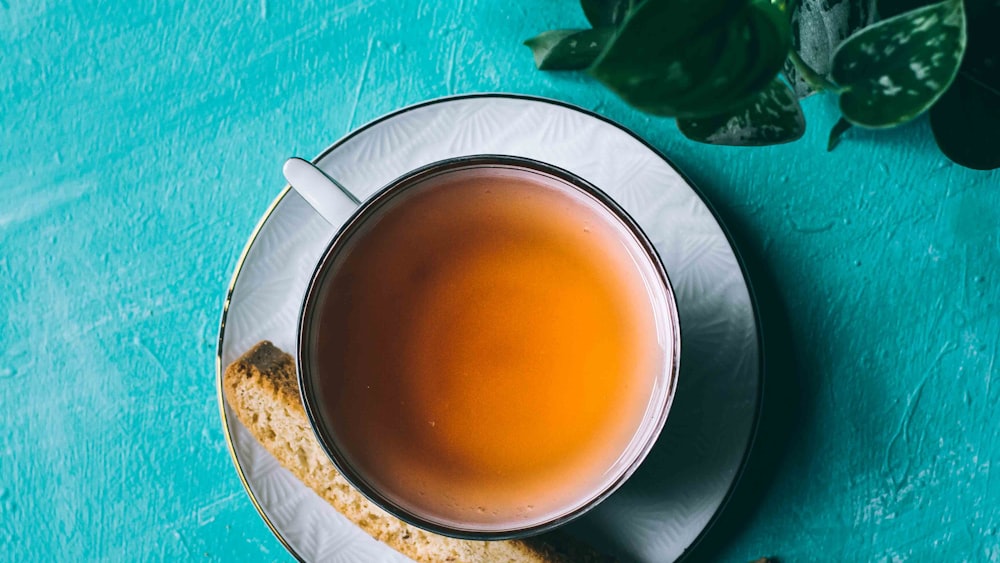
Black tea can be a valuable health ally in managing blood sugar levels, potentially improving insulin sensitivity and reducing the risk of developing type 2 diabetes.
Cancer Risk Reduction and Black Tea
Cancer, the colossus we all wish to keep at bay, has met its match in the antioxidant-laden world of black tea. While no silver bullet exists in the cancer prevention arena, black tea’s flavonoids and polyphenols offer a glimmer of hope. Studies and reviews have suggested that regular black tea consumption might be associated with a reduced risk of certain cancers, including ovarian and breast cancers.
The underlying mechanism remains under investigation, but the antioxidants present in black tea are believed to play a significant role by shielding cells from DNA damage and inhibiting tumor growth. Thus, while black tea should not be viewed as a cure or sole preventive measure, its consumption adds another layer to the mosaic of cancer-preventive dietary choices.
How Black Tea Can Improve Focus
Drinking black tea can significantly improve focus and attention, mainly because of its caffeine content and an amino acid called L-theanine. These compounds work together to increase brain function. Specifically, caffeine blocks adenosine, a neurotransmitter that makes you feel sleepy, thus providing a vigilance boost. Now, I know what you’re thinking: “So, it’s just the caffeine doing the heavy lifting?” Not quite. L-theanine has been shown to increase alpha activity in the brain, leading to a state of relaxed concentration. Imagine L-theanine as the calm conductor of an orchestra, keeping the caffeine instruments in check, making sure they don’t get too loud and chaotic. It’s like having your brain on its best behaviour, ready to tackle that long to-do list or master a new skill.
Studies support this harmonious relationship. For instance, research published in the journal Psychopharmacology found that participants who consumed tea experienced an increase in self-reported alertness and task performance compared to those who didn’t. So, the next time you’re looking for a mental pick-me-up without the jitters you get from coffee, why not brew a steaming cup of black tea? It might just be the perfect beverage to keep your brain in the zone, whether you’re grinding through the afternoon slump or gearing up for an intensive study session.
The Simplicity of Incorporating Black Tea into Your Diet
Incorporating black tea into your diet is as easy as, well, brewing a cup of tea. You might chuckle, but it’s true! The simplicity of integrating black tea into your daily routine is part of its charm. Whether you’re a morning person who needs that first cup to start the day or you enjoy a mid-afternoon refreshment, black tea offers a versatile solution.
First off, black tea isn’t high maintenance. You don’t need exotic ingredients or a barista-level skill set. Hot water and a tea bag or loose-leaf tea are all it takes. From the classic Earl Grey to a more robust Assam, there’s a flavor for every palate. And for those of you thinking about the afternoon sugar craving, chuck in a cinnamon stick for a guilt-free sweetness or a slice of lemon for a tangy twist.
But here’s where it gets interesting. You can create iced teas for those sweltering summer days, or concoct warm, spiced tea lattes in the colder months. And let’s not overlook the potential for culinary creativity. Black tea can be a game-changer in marinades, giving your grilled foods a depth of flavor that water just can’t match. Or how about brewing a strong cup to make a tea-infused rice dish? The possibilities are as endless as they are delicious.
Integrating black tea into your daily routine is simple and versatile, offering a wide range of flavors and creative culinary opportunities.
Potential Risks and Considerations
Now, before we get too carried away riding the high waves of black tea enthusiasm, it’s important to swim through the sea of caution. Like anything consumed in excess, black tea has its potential risks and considerations.
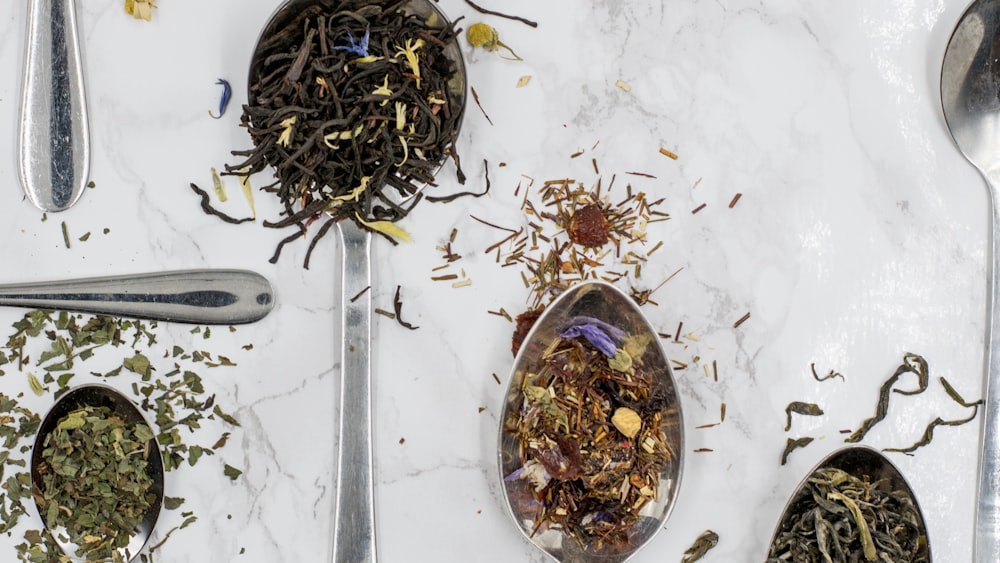
Caffeine Content in Black Tea
The caffeine content in black tea can be both a blessing and a curse. On one side of the cup, caffeine acts as a stimulant that can boost alertness and help fend off drowsiness. However, turn the cup around, and for some people, too much caffeine can lead to nervousness, jitteriness, and trouble sleeping. In fact, heavy consumption – we’re talking more than 4 cups a day – might increase the risk of side effects. And let’s not forget our pregnant tea lovers; experts generally recommend limiting caffeine intake during pregnancy, so it might be wise to brew lighter or look towards decaf options.
Possible Interactions with Medications and Supplements
Here’s where things get a tad science-y. Black tea contains compounds that can interact with certain medications and supplements, modifying their effects. For example, it can reduce the absorption of iron from foods, which could be a concern for people prone to anemia. Anticoagulant medications, which help prevent blood clots, may not play nice with the amount of vitamin K found in some types of black tea. Always consult with a healthcare provider about your tea consumption if you’re on prescription drugs or using herbal supplements, just to be safe.
The Risk of Anemia and Toxic Elements
While enjoying a cup or two of black tea is usually considered safe, excessive intake could increase the risk of anemia in individuals with iron absorption issues. This is because the tannins in tea can inhibit the body’s ability to absorb iron from foods. Also, a hardly-ever-discussed fact is that, depending on where the tea leaves are grown, there could be a slight risk of consuming toxic elements like heavy metals found in soil. Though most commercially available teas are tested and safe, it’s something to keep in mind if you’re venturing into more obscure tea sources.
FAQs
How much black tea is safe to consume daily?
The safe amount of black tea to consume daily is generally considered to be up to 3-4 cups. This strikes a balance allowing one to enjoy the health benefits of black tea while minimizing the risks associated with excessive caffeine intake.
Can black tea help in weight loss?
Yes, black tea can help in weight loss by promoting fat breakdown and decreasing calorie intake. It contains polyphenols that may help reduce calorie consumption and stimulate fat breakdown.
Is black tea beneficial for skin health?
Yes, black tea is beneficial for skin health. Its antioxidants can protect the skin from premature aging and reduce the risk of acne and other skin conditions.
Are there any specific types of black tea that are healthier?
While all types of black tea offer health benefits, those with higher concentrations of polyphenols, like Darjeeling and Assam, may provide an enhanced antioxidant effect. [3]
Conclusion
Navigating the wide world of black tea can be an enchanting journey, offering a blend of rich flavors, cultural history, and impressive health benefits. From its prowess in enhancing focus and attention to its potential role in supporting heart health, black tea is more than just a comforting beverage; it’s a veritable elixir for the mind and body. But like any good thing, moderation is key. Being mindful of the caffeine content, understanding possible interactions with medications, and considering your body’s specific health needs can ensure that your tea-drinking habits are both enjoyable and beneficial.
In the end, exploring the black tea benefits should be an enjoyable and healthful pursuit. It’s a reminder that sometimes, the simple act of brewing a cup of tea can be the spoonful of balance we need in our hectic lives. So, let’s savor each sip, relishing the warmth, the flavor, and the countless stories steeped in every cup. Until we meet again, keep the kettle whistling and your spirit light. Cheers to your health and happiness, with a dash of whimsy to boot.
Warmest regards,
Zoe



